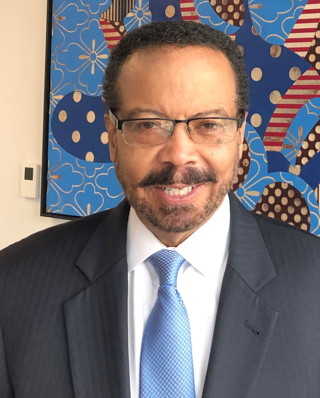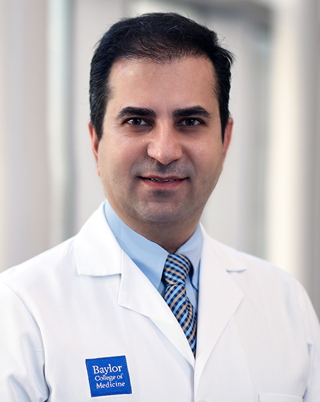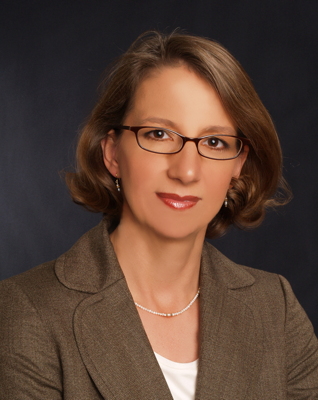Speakers

Roderic Pettigrew
Keynote Speaker
Roderic I. Pettigrew, PhD, MD, serves as chief executive officer (CEO) of Engineering Health (EnHealth) and executive dean for Engineering Medicine (EnMed) at Texas A&M University, in partnership with Houston Methodist Hospital. Dr. Pettigrew also holds the endowed Robert A. Welch Chair in Medicine. EnHealth is the nation’s first comprehensive educational program to fully integrate engineering into all health-related disciplines. EnMed is the nation’s first four-year, fully-integrated engineering and medical education curriculum leading to both an MD and master’s degree in engineering in four years.
An internationally recognized leader in biomedical imaging and bioengineering, Dr. Pettigrew served for 15 years as the founding director for the National Institute of Biomedical Imaging and Bioengineering (NIBIB) at National Institutes of Health (NIH). Prior to his appointment at the NIH, he joined Emory University School of Medicine as professor of radiology and medicine (cardiology) and Georgia Institute of Technology as professor of bioengineering. He is known for pioneering work in four-dimensional imaging of the cardiovascular system using magnetic resonance imaging (MRI).
Dr. Pettigrew has been elected to membership in the National Academy of Medicine, the National Academy of Engineering (NAE), the National Academy of Inventors, the American Academy of Arts and Sciences, and the National Academy of Sciences, India. His awards include gold medals from the Academy of Radiology Research and the Radiological Society of North America, the Arthur M. Bueche Award from the NAE and the Vannevar Bush Award from the National Science Board.
He is a graduate of Morehouse College as a Merrill Scholar (BS in physics), Massachusetts Institute of Technology (MIT) as a Whitaker HST fellow (PhD in radiation physics) , the Leonard M. Miller School of Medicine at the University of Miami ( MD), and completed residency training at UC-San Diego.

Bijan Najafi
Keynote Speaker
Prof. Bijan Najafi is currently serving with the Baylor College of Medicine (Houston, Texas), Department of Surgery as a tenured Professor of Surgery, Director of NSF Center to Stream HealthCare in Place (C2SHIP), Director of Clinical Research in the Division of Vascular Surgery, and Director of Interdisciplinary Consortium on Advanced Motion Performance (iCAMP). He is also serving as an Adjunct Professor in Rice University and University of Arizona.
He completed his Ph.D. in Bioengineering followed by a Postdoctoral Fellowship in Biomechanics at the Swiss Federal Institute of Tech and in Neuroscience at Harvard University.
He has over two decades of experience in designing bio-inspired sensors for objective evaluation of healthy state of patients with locomotor dysfunctions, over 200 scientific publications in peer reviewed journals or conference proceeding.
He worked with a wide network of clinical and bioengineering collaborators across the globe primarily in the clinical areas of falls, frailty, gait, cognitive impairment, diabetes, remote patient monitoring, and digital health. He received multiple prestigious awards including “the most Influential Health and Medical Leaders” award by Tucson Local Media in 2014. He is also included in the Stanford List of Top 100,000 Scientists (top 2%) in the world in the year of 2019 (re. Loannidis et al, PLOS Biology, 2020).

Rebecca Richards-Kortum
Keynote Speaker
Rebecca Richards-Kortum is the Malcolm Gillis University Professor and member of the Department of Bioengineering at Rice University. After receiving a B.S. in Physics and Mathematics from the University of Nebraska-Lincoln in 1985, she continued her graduate work at the Massachusetts Institute of Technology, where she received a PhD in Medical Physics in 1990. She joined the faculty in Bioengineering at Rice University in 2005 and served as Chair of Bioengineering from 2005-2008 and 2012-2014.
She was named a Howard Hughes Medical Institute Professor in 2002 and 2006, and is an elected member of the US National Academy of Engineering, US National Academy of Sciences, the US National Academy of Inventors, the American Academy of Arts and Sciences, and the American Philosophical Society. She is a recipient of a MacArthur Foundation Fellowship.
Dr. Richards-Kortum’s group is developing imaging systems to enable better screening for oral, esophageal, and cervical cancer at the point-of-care in low-resource settings; novel, low-cost sensors to detect infectious diseases at the point-of-care; and technologies to improve neonatal care in low-resource settings.

John Rogers
Keynote Speaker
Professor John A. Rogers obtained BA and BS degrees in chemistry and in physics from the University of Texas, Austin, in 1989. From MIT, he received SM degrees in physics and in chemistry in 1992 and the PhD degree in physical chemistry in 1995. From 1995 to 1997, Rogers was a Junior Fellow in the Harvard University Society of Fellows. He joined Bell Laboratories as a Member of Technical Staff in the Condensed Matter Physics Research Department in 1997, and served as Director of this department from the end of 2000 to 2002. He then spent thirteen years on the faculty at University of Illinois, most recently as the Swanlund Chair Professor and Director of the Seitz Materials Research Laboratory. In the Fall of 2016, he joined Northwestern University as the Louis Simpson and Kimberly Querrey Professor of Materials Science and Engineering, Biomedical Engineering and Medicine, with affiliate appointments in Mechanical Engineering, Electrical and Computer Engineering and Chemistry, where he is also Director of the recently endowed Querrey-Simpson Institute for Bioelectronics. His research has been recognized by many awards, including a MacArthur Fellowship (2009), the Lemelson-MIT Prize (2011), the Smithsonian Award for American Ingenuity (2013), the MRS Medal (2018), the Benjamin Franklin Medal (2019) and a Guggenheim Fellowship (2021). He is a member of the National Academy of Engineering, the National Academy of Sciences, the National Academy of Medicine, the National Academy of Inventors and the American Academy of Arts and Sciences.
